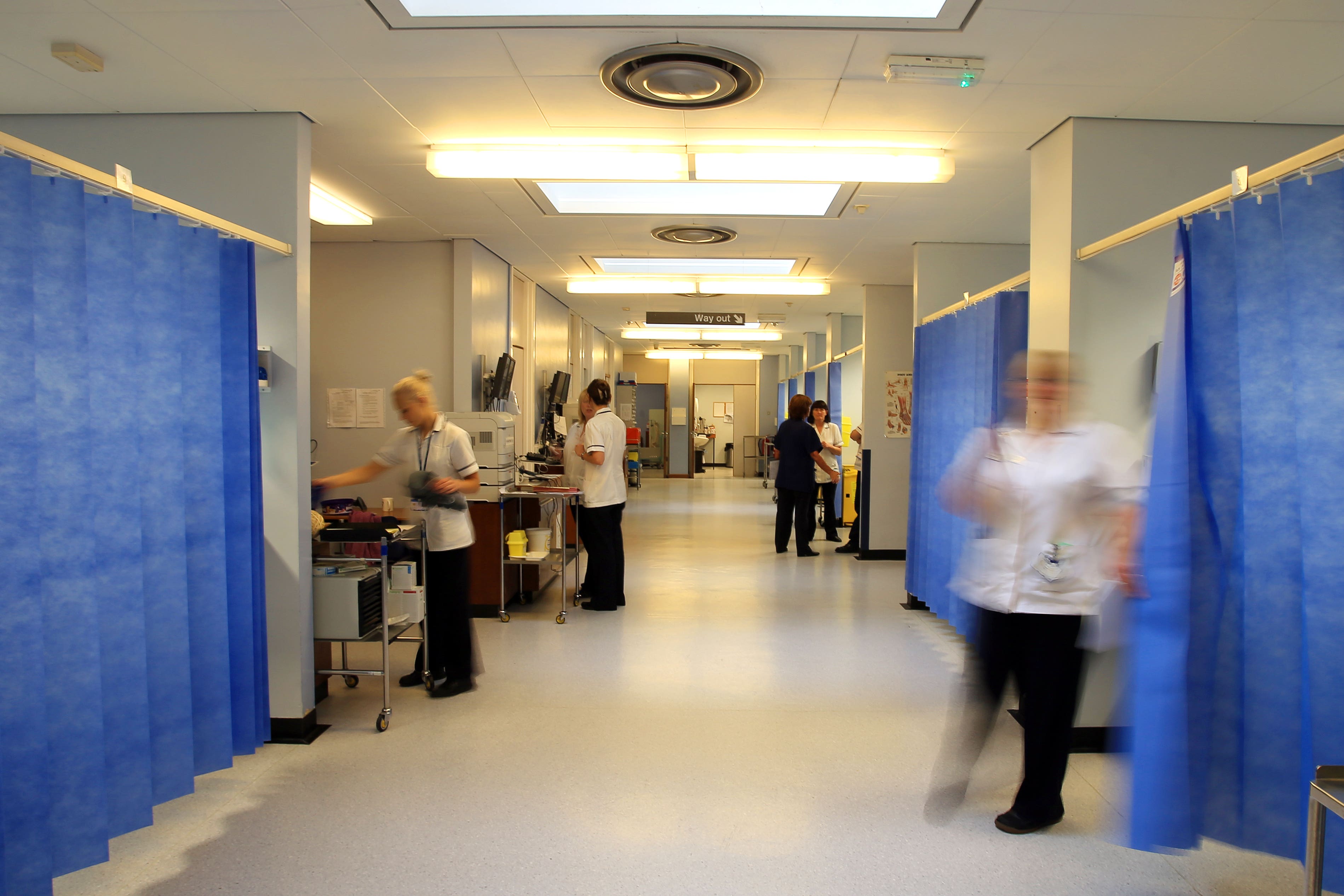Patients dying alone amid hospital nursing shortages – RCN survey
The Royal College of Nursing said staff are often caring for dozens of patients at a time.

Your support helps us to tell the story
From reproductive rights to climate change to Big Tech, The Independent is on the ground when the story is developing. Whether it's investigating the financials of Elon Musk's pro-Trump PAC or producing our latest documentary, 'The A Word', which shines a light on the American women fighting for reproductive rights, we know how important it is to parse out the facts from the messaging.
At such a critical moment in US history, we need reporters on the ground. Your donation allows us to keep sending journalists to speak to both sides of the story.
The Independent is trusted by Americans across the entire political spectrum. And unlike many other quality news outlets, we choose not to lock Americans out of our reporting and analysis with paywalls. We believe quality journalism should be available to everyone, paid for by those who can afford it.
Your support makes all the difference.Hospital patients are being left to die alone because of staff shortages, according to a new report.
The Royal College of Nursing (RCN) said its research suggested that only a third of shifts had enough registered nurses on duty.
Nurses are often caring for dozens of patients at a time, said the RCN, as it called for safety-critical limits on the maximum number of patients a single nurse can be responsible for.
A survey of more than 11,000 nursing staff found many were demoralised from being unable to keep patients safe, the RCN said.
I have not been able to sit with patients who are dying, meaning they have been left to die alone
Only a third of hospital nursing staff said their shift had the planned number of registered nurses on it.
Significant numbers in accident and emergency and outpatient departments reported having more than 51 patients to care for.
A nurse working in the community in the south-west of England, said: “We have days when we have 60 visits unallocated because we don’t have enough staff.
“Every day we are asked to do more. We are always rushing.”
Another, also working in the community in the south of England, said: “We leave over 50 patients requiring nursing care unseen on a daily basis due to poor staffing levels. This leads to increases in hospital admissions and death.
“It is left to us to decide who gets seen and who gets missed, which is heartbreaking.”
The standards of what is acceptable care for a service to provide have fallen so low, the benchmark is survival
In a hospital in the West Midlands one nurse, said: “I have not been able to sit with patients who are dying, meaning they have been left to die alone.
“I have not had the time to make sure patients are fed properly and have adequate drinks.”
A midwife, working in a hospital in Yorkshire, said: “Completely unsafe care due to unacceptable staffing levels. The standards of what is acceptable care for a service to provide have fallen so low, the benchmark is survival.”
RCN acting general secretary Professor Nicola Ranger said: “In every health and care setting, nursing staff are fighting a losing battle to keep patients safe.
“Without safety-critical limits on the maximum number of patients they can care for, nurses are being made responsible for dozens at a time, often with complex needs.
“It is dangerous to patients and demoralising for nursing staff.
“When patients cannot access safe care in the community, conditions worsen and they end up in hospital where workforce shortages are just as severe. This vicious cycle fails staff and patients – it cannot go on.
“We desperately need urgent investment in the nursing workforce but also to see safety-critical nurse-patient ratios enshrined in law.
“That is how we improve care and stop patients coming to harm.”